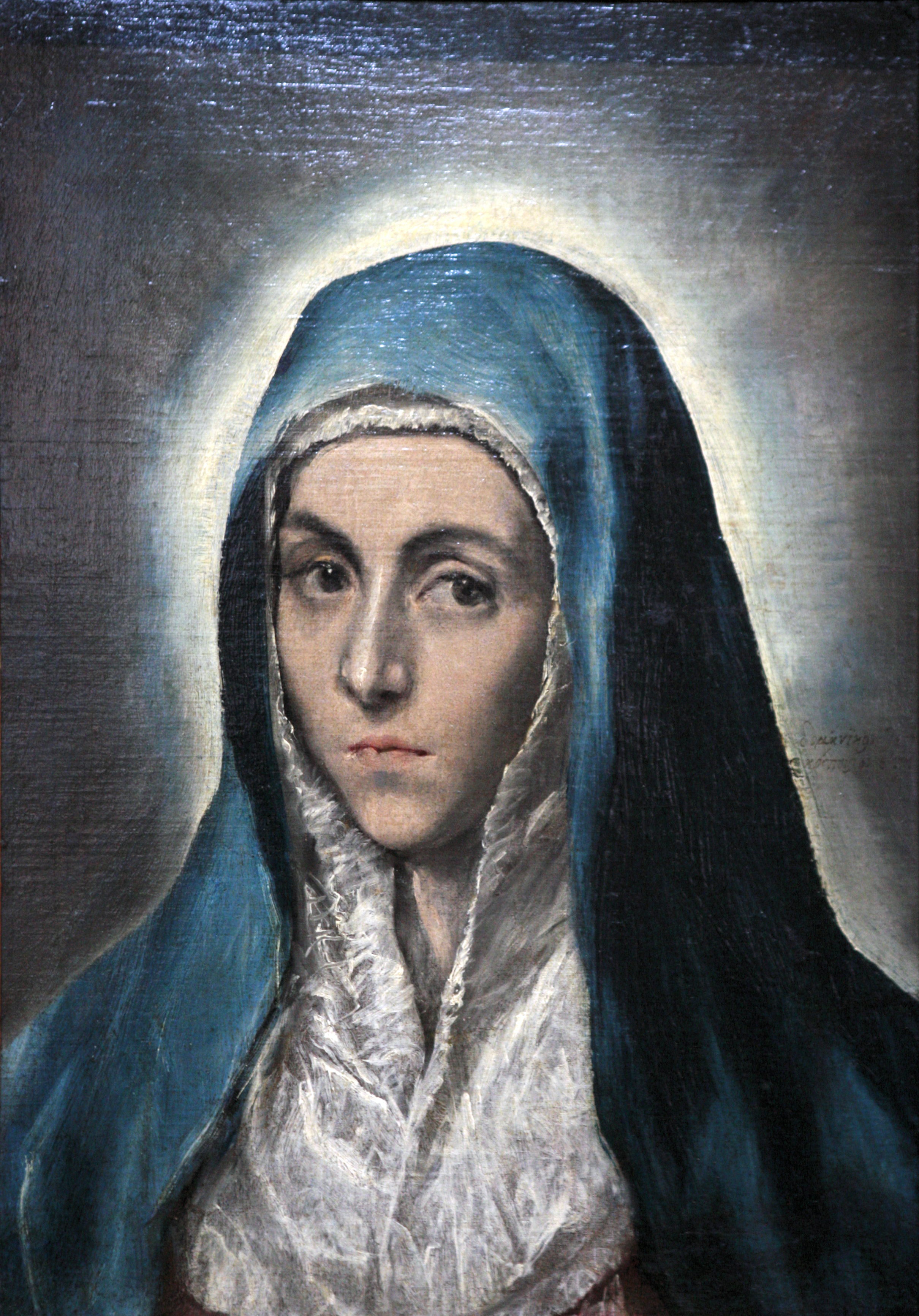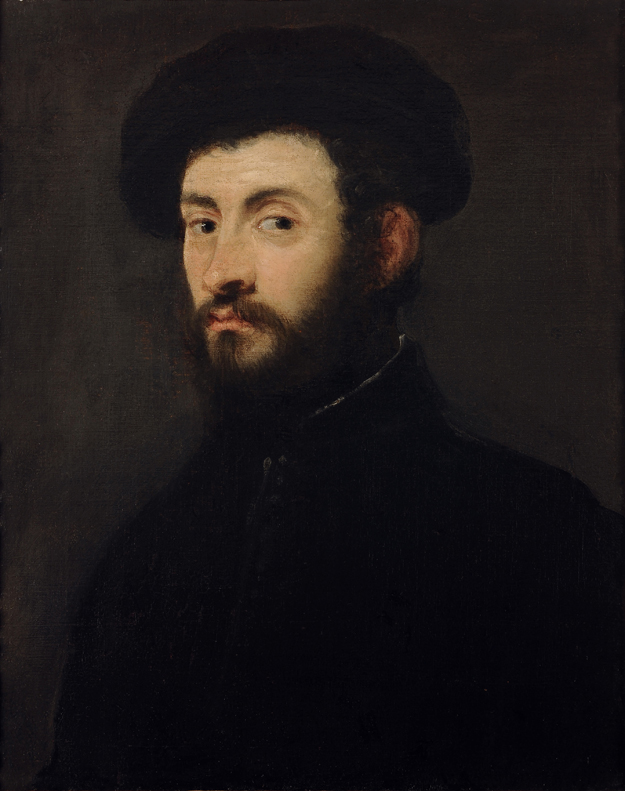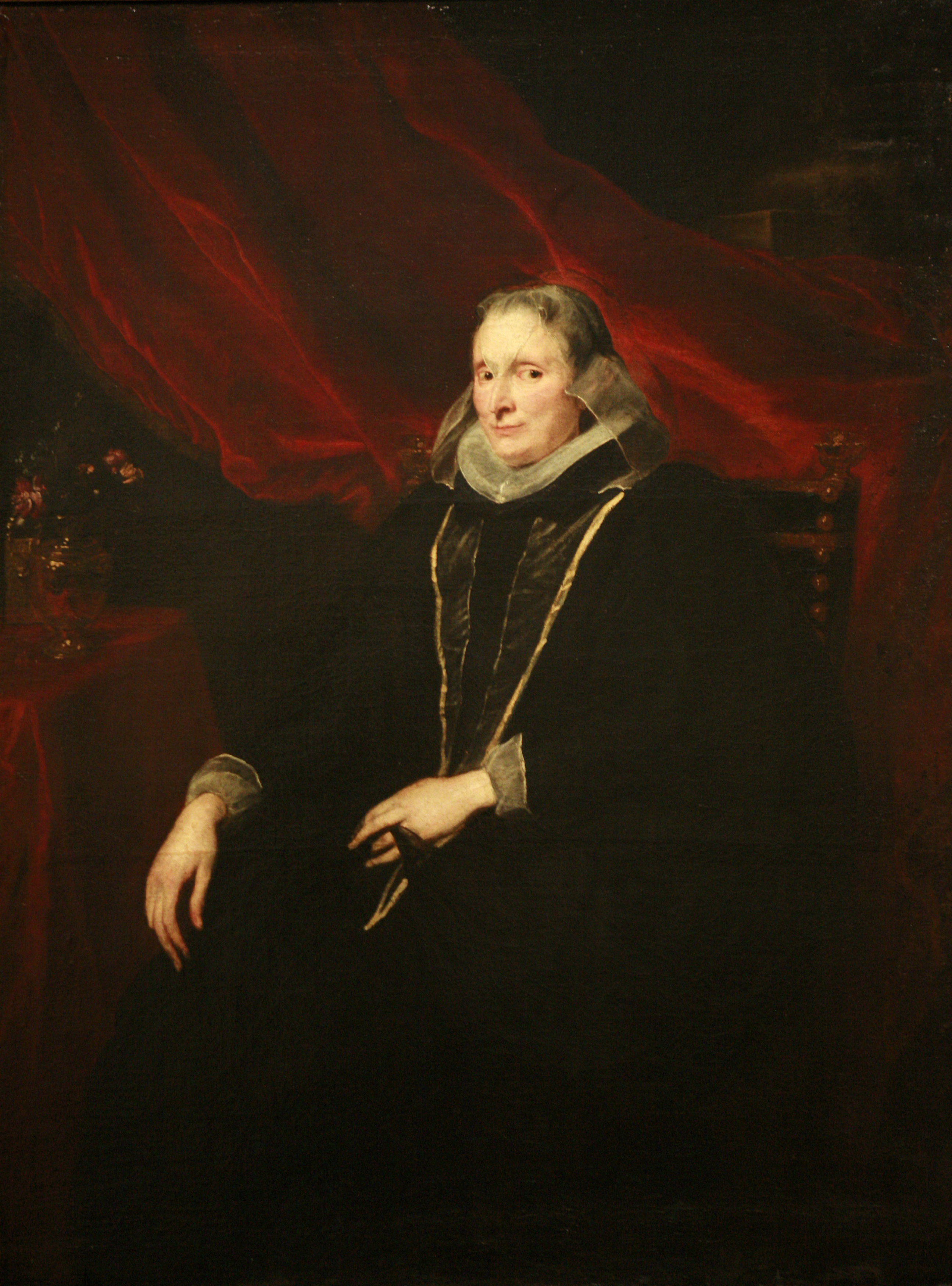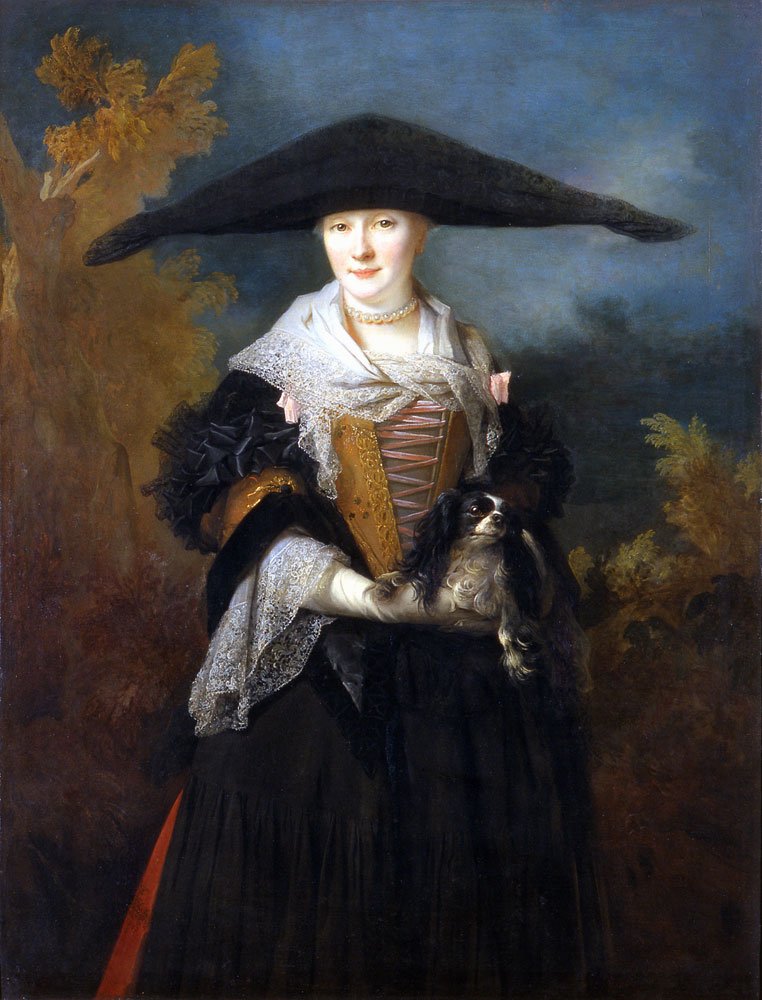Musée Des Beaux-Arts De Strasbourg on:
[Wikipedia]
[Google]
[Amazon]



 The Musée des Beaux-Arts de Strasbourg (Museum of Fine Arts of Strasbourg) is the old masters paintings collection of the city of
The Musée des Beaux-Arts de Strasbourg (Museum of Fine Arts of Strasbourg) is the old masters paintings collection of the city of
Musees-strasbourg.org: Official website Selected works
{{Authority control *



 The Musée des Beaux-Arts de Strasbourg (Museum of Fine Arts of Strasbourg) is the old masters paintings collection of the city of
The Musée des Beaux-Arts de Strasbourg (Museum of Fine Arts of Strasbourg) is the old masters paintings collection of the city of Strasbourg
Strasbourg ( , ; ; ) is the Prefectures in France, prefecture and largest city of the Grand Est Regions of France, region of Geography of France, eastern France, in the historic region of Alsace. It is the prefecture of the Bas-Rhin Departmen ...
, located in the Alsace
Alsace (, ; ) is a cultural region and a territorial collectivity in the Grand Est administrative region of northeastern France, on the west bank of the upper Rhine, next to Germany and Switzerland. In January 2021, it had a population of 1,9 ...
region of France
France, officially the French Republic, is a country located primarily in Western Europe. Overseas France, Its overseas regions and territories include French Guiana in South America, Saint Pierre and Miquelon in the Atlantic Ocean#North Atlan ...
. The museum is housed in the first and second floors of the baroque Palais Rohan since 1898. The museum displays works by non- Upper Rhenish artists from between the 14th century and 1871 and by Upper Rhenish artist from between 1681 and 1871. The museum owned 1,934 works as of 31 December 2015, this number has substantially increased since (see below). The old masters from the upper-Rhenish area until 1681 are exhibited in the neighboring Musée de l’Œuvre Notre-Dame.
Historical overview
The first municipal art collection of the city of Strasbourg was the result of the French Revolution, and was a consequence of the expropriation of churches and cloisters. Through the years, the collection, which was founded in 1801, grew by private donations, as well as government loans from the inventory of theLouvre
The Louvre ( ), or the Louvre Museum ( ), is a national art museum in Paris, France, and one of the most famous museums in the world. It is located on the Rive Droite, Right Bank of the Seine in the city's 1st arrondissement of Paris, 1st arron ...
. On August 24, 1870, the museum, which was housed in the ''Aubette'' on Place Kléber
The Place Kléber (''Kleberplatz'' in German) is the central square of Strasbourg, France. As the largest square at the center of Strasbourg, in the heart of the city's commercial area, it was named after French revolutionary general Jean-Ba ...
, was set on fire by Prussian artillery fire and completely destroyed. After the end of the Franco-Prussian War
The Franco-Prussian War or Franco-German War, often referred to in France as the War of 1870, was a conflict between the Second French Empire and the North German Confederation led by the Kingdom of Prussia. Lasting from 19 July 1870 to 28 Janua ...
, it was resolved to re-establish the museum, and the imperial art historian Wilhelm von Bode was commissioned with the task in 1889. In 1890, the museum was launched and was re-stocked since that time by acquisitions and gifts. In 1931 under the leadership of Hans Haug (1890–1965), the collection of medieval art and upper-Rhenish painting (Konrad Witz
Konrad Witz (ca.1400/1410 – winter 1445/spring 1446) was a German and Swiss painter, active mainly in Basel.
Life
He was born probably in Rottweil, Germany. In 1434 he entered the painters’ guild in Basel, where he worked most of his life. ...
, Hans Baldung
Hans Baldung (1484 or 1485 – September 1545), called Hans Baldung Grien, (being an early nickname, because of his predilection for the colour green), was a painter, printer, engraver, draftsman, and stained glass artist, who was considered th ...
, Sebastian Stoskopff) was transferred to the newly founded Musée de l’Œuvre Notre-Dame. The collection of modern art went to the Musée d’Art Moderne et Contemporain de Strasbourg (Museum of Modern and Contemporary Art of Strasbourg). Haug's superior during the German occupation from 1940 to 1944 was Kurt Martin.
On August 13, 1947, fire destroyed part of the re-established collection, including works by Francesco Guardi
Francesco Lazzaro Guardi (; 5 October 1712 – 1 January 1793) was an Italian painter, nobleman, and a member of the Venetian School (art), Venetian School. He is considered to be among the last practitioners, along with his brothers, of the clas ...
, Thomas de Keyser, Antonio del Pollaiuolo and Lucas Cranach the Elder
Lucas Cranach the Elder ( ; – 16 October 1553) was a German Renaissance painter and printmaker in woodcut and engraving. He was court painter to the Electors of Saxony for most of his career, and is known for his portraits, both of German ...
. However, with the money from the insurance, it was possible to acquire other artistically valuable paintings. Apart from regular purchases on the art market, the collection of the museum is also regularly being expanded by substantial donations, notably in 1987 and 1994 by collectors Othon Kaufman and François Schlageter (Italian paintings), in 2004 by collectors Roger and Elisabeth Eisenbeth (Dutch paintings), in 2009 by the collector Ann L. Oppenheimer (Italian, Flemish and Dutch paintings), and in 2019 by the collectors Jeannine Poitrey and Marie-Claire Ballabio (mostly Italian and Dutch paintings).
In 2005 the museum reached a settlement with the heirs of Bernhard Altmann over a Canaletto that had been looted by the Nazis from its Jewish owner.
Painters exhibited (selected)
Italian
:Giotto di Bondone
Giotto di Bondone (; – January 8, 1337), known mononymously as Giotto, was an Italian painter and architect from Florence during the Late Middle Ages. He worked during the Gothic and Proto-Renaissance period. Giotto's contemporary, the ba ...
:Sano di Pietro
Sano may refer to:
Geography
* Sano, Kentucky, U.S.
* Sano, Tochigi, Japan
* Monte Sano Mountain, a mountain in Alabama, United States
** Monte Sano State Park
* Wai Sano, a volcano in Flores, Indonesia
Fiction
* Sano (''Rurouni Kenshin''), a ch ...
:Sandro Botticelli
Alessandro di Mariano di Vanni Filipepi ( – May 17, 1510), better known as Sandro Botticelli ( ; ) or simply known as Botticelli, was an Italian painter of the Early Renaissance. Botticelli's posthumous reputation suffered until the late 1 ...
:Cima da Conegliano
Giovanni Battista Cima, also called Cima da Conegliano (), was an Italian Renaissance painter, who mostly worked in Venice. He can be considered part of the Venetian school (art), Venetian school, though he was also influenced by Antonello da ...
: Carlo Crivelli
:Filippino Lippi
Filippino Lippi (probably 1457 – 18 April 1504) was an Italian Renaissance painter mostly working in Florence, Italy during the later years of the Early Renaissance and first few years of the High Renaissance. He also worked in Rome for a ...
:Piero di Cosimo
Piero di Cosimo (2 January 1462 – 12 April 1522), also known as Piero di Lorenzo, was an Italian Renaissance painter, who continued to use an essentially Early Renaissance style into the 16th century.
He is most famous for the mythologica ...
:Cima da Conegliano
Giovanni Battista Cima, also called Cima da Conegliano (), was an Italian Renaissance painter, who mostly worked in Venice. He can be considered part of the Venetian school (art), Venetian school, though he was also influenced by Antonello da ...
:Raphael
Raffaello Sanzio da Urbino (; March 28 or April 6, 1483April 6, 1520), now generally known in English as Raphael ( , ), was an Italian painter and architect of the High Renaissance. List of paintings by Raphael, His work is admired for its cl ...
:Correggio
Antonio Allegri da Correggio (August 1489 – 5 March 1534), usually known as just Correggio (, also , , ), was an Italian Renaissance painter who was the foremost painter of the Parma school of the High Renaissance, who was responsible for som ...
:Veronese
Veronese is the Italian word denoting someone or something from Verona, Italy and may refer to:
* Veronese Riddle, a popular riddle in the Middle Ages
* Veronese (moth), ''Veronese'' (moth), a moth genus in the family Crambidae
* Monte Veronese, ...
:Tintoretto
Jacopo Robusti (late September or early October 1518Bernari and de Vecchi 1970, p. 83.31 May 1594), best known as Tintoretto ( ; , ), was an Italian Renaissance painter of the Venetian school. His contemporaries both admired and criticized th ...
:Guercino
Giovanni Francesco Barbieri (February 8, 1591 – December 22, 1666),Miller, 1964 better known as (il) Guercino (), was an Italian Baroque painter and draftsman from Cento in the Emilia region, who was active in Rome and Bologna. The vigorous n ...
:Canaletto
Giovanni Antonio Canal (18 October 1697 – 19 April 1768), commonly known as Canaletto (), was an Italian painter from the Republic of Venice, considered an important member of the 18th-century Venetian school.
Painter of cityscapes or ...
: Giambattista Tiepolo
:Salvator Rosa
Salvator Rosa (1615 – March 15, 1673) is best known today as an Italian Baroque painter, whose romanticized landscapes and history paintings, often set in dark and untamed nature, exerted considerable influence from the 17th century into the ...
: Alessandro Magnasco
: Giuseppe Maria Crespi
Flemish and Dutch
: Simon Marmion :Hans Memling
Hans Memling (also spelled Memlinc; – 11 August 1494) was a German-Flemish people, Flemish painter who worked in the tradition of Early Netherlandish painting. Born in the Middle Rhine region, he probably spent his childhood in Mainz. During ...
: Lucas van Leyden
:Gerard David
Gerard David ( – 13 August 1523) was an Early Netherlandish painter and manuscript illuminator known for his brilliant use of color. Only a bare outline of his life survives, although some facts are known. He may have been the Meester ghera ...
:Maarten van Heemskerck
Maarten van Heemskerck (born Maerten Jacobsz van Veen; 1 June 1498 – 1 October 1574), also known as Marten Jacobsz Heemskerk van Veen, was a Dutch portrait and religious painter, who spent most of his career in Haarlem. He was a pupil of Jan ...
:Peter Paul Rubens
Sir Peter Paul Rubens ( ; ; 28 June 1577 – 30 May 1640) was a Flemish painting, Flemish artist and diplomat. He is considered the most influential artist of the Flemish Baroque painting, Flemish Baroque tradition. Rubens' highly charged comp ...
:Jacob Jordaens
Jacques (Jacob) Jordaens (19 May 1593 – 18 October 1678Jacques Jordaens
in the Netherlands Institute for Ar ...
: Salomon van Ruysdael
:in the Netherlands Institute for Ar ...
Pieter de Hooch
Pieter Hendricksz. de Hooch (; also spelled ''Hoogh'' or ''Hooghe''; 20 December 1629 – after 1683), was a Dutch Golden Age painter famous for his genre works of quiet domestic scenes with an open doorway. He was a contemporary, in the ...
:Anthony van Dyck
Sir Anthony van Dyck (; ; 22 March 1599 – 9 December 1641) was a Flemish Baroque painting, Flemish Baroque artist who became the leading court painter in England after success in the Spanish Netherlands and Italy.
The seventh child of ...
:Willem Kalf
Willem Kalf (1619 – 31 July 1693) was one of the most prominent Dutch still-life painters of the 17th century, the Dutch Golden Age. We first get acquainted with Willem Kalf through Arnold Houbraken, in his Groot Schilderboek, who speaks ver ...
:Pieter Claesz
Pieter Claesz (c. 1597 – 1 January 1660) was a Dutch Golden Age painter of still lifes.
Biography
He was born in Berchem, Belgium, near Antwerp, where he became a member of the Guild of St. Luke in 1620. He moved to Haarlem in 1620, where hi ...
: Christiaen van Couwenbergh
: Cornelis Engelsz
Spanish
:El Greco
Doménikos Theotokópoulos (, ; 1 October 1541 7 April 1614), most widely known as El Greco (; "The Greek"), was a Greek painter, sculptor and architect of the Spanish Renaissance, regarded as one of the greatest artists of all time. ...
:Jusepe de Ribera
Jusepe de Ribera (; baptised 17 February 1591 – 3 November 1652) was a Spanish painter and Printmaking, printmaker. Ribera, Francisco de Zurbarán, Bartolomé Esteban Murillo, and the singular Diego Velázquez, are regarded as the major artist ...
: Francisco de Zurbarán
:Francisco de Goya
Francisco José de Goya y Lucientes (; ; 30 March 1746 – 16 April 1828) was a Spanish romantic painter and printmaker. He is considered the most important Spanish artist of the late 18th and early 19th centuries. His paintings, drawings, a ...
French
:Philippe de Champaigne
Philippe de Champaigne (; 26 May 1602 – 12 August 1674) was a Duchy of Brabant, Brabant-born French people, French Baroque era painter, a major exponent of the French art, French school. He was a founding member of the Académie royale de pein ...
:Claude Lorrain
Claude Lorrain (; born Claude Gellée , called ''le Lorrain'' in French; traditionally just Claude in English; c. 1600 – 23 November 1682) was a French painter, draughtsman and etcher of the Baroque era. He spent most of his life in I ...
:Nicolas de Largillière
Nicolas de Largillière (; baptised 10 October 1656 – 20 March 1746) was a French people, French painter and Drawing, draughtsman.
Biography
Early life
Largillière was baptised at the in Paris on 10 October 1656. The son of a merchant hatm ...
:François Boucher
François Boucher ( , ; ; 29 September 1703 – 30 May 1770) was a French painter, draughtsman and etcher, who worked in the Rococo style. Boucher is known for his idyllic and voluptuous paintings on classical themes, decorative allegories ...
: Simon Vouet
:Antoine Watteau
Jean-Antoine Watteau (, , ; baptised 10 October 1684died 18 July 1721) Alsavailablevia Oxford Art Online (subscription needed). was a French Painting, painter and Drawing, draughtsman whose brief career spurred the revival of interest in colour ...
:Jean Siméon Chardin
Jean Siméon Chardin (; November 2, 1699 – December 6, 1779) was an 18th-century France, French List of painters, painter. He is considered a master of still life, and is also noted for his genre works, genre paintings which depict kitch ...
:Philip James de Loutherbourg
Philip James de Loutherbourg, RA (born Philippe Jacques de Loutherbourg; 31 October 174011 March 1812) was a French-born British painter who became known for his large naval works, his elaborate set designs for London theatres, and his invent ...
:Jean-Baptiste-Camille Corot
Jean-Baptiste-Camille Corot ( , , ; 16 July 1796 – 22 February 1875), or simply Camille Corot, was a French Landscape art, landscape and Portraitist, portrait painter as well as a printmaking, printmaker in etching. A pivotal figure in ...
:Théodore Chassériau
Théodore Chassériau (; ; September 20, 1819 – October 8, 1856) was a Dominican-born French Romantic painter noted for his portraits, historical and religious paintings, allegorical murals, and Orientalist images inspired by his travels to A ...
:Gustave Courbet
Jean Désiré Gustave Courbet ( ; ; ; 10 June 1819 – 31 December 1877) was a French painter who led the Realism movement in 19th-century French painting. Committed to painting only what he could see, he rejected academic convention and the ...
: Théodore Rousseau
:Edgar Degas
Edgar Degas (, ; born Hilaire-Germain-Edgar De Gas, ; 19 July 183427 September 1917) was a French Impressionist artist famous for his pastel drawings and oil paintings.
Degas also produced bronze sculptures, prints, and drawings. Degas is e ...
Sculptors exhibited
: Baccio Bandinelli :Alessandro Algardi
Alessandro Algardi (July 31, 1598 – June 10, 1654) was an Italian high-Baroque sculptor active almost exclusively in Rome. In the latter decades of his life, he was, along with Francesco Borromini and Pietro da Cortona, one of the major rivals ...
: Alessandro Vittoria
: François Girardon
: Jean-Antoine Houdon
:Jean-Baptiste Carpeaux
Jean-Baptiste Carpeaux (; 11 May 1827 – 12 October 1875) was a French sculptor and painter during the Second Empire under Napoleon III.
Life
Born in Valenciennes, Nord, son of a mason, his early studies were under François Rude. Carpe ...
: Antoine-Louis Barye
: Théodore-Charles Gruyère
: François Joseph Bosio
: Adolf von Hildebrand
See also
* :Paintings in the Musée des Beaux-Arts de StrasbourgBibliography
*''Le musée des Beaux-Arts de Strasbourg - Cinq siècles de peinture'', Éditions des Musées de Strasbourg, May 2006, ''in French'' *''Peintures flamandes et hollandaises du Musée des Beaux-Arts de Strasbourg'', Éditions des Musées de Strasbourg, February 2009, *''Les Peintures italiennes du Musée des Beaux-Arts, xvie, xviie et xviiie siècles'', Éditions Le Seuil, 1996, *''Les Primitifs italiens du Musée des Beaux-Arts de Strasbourg'', Éditions Le Seuil, 1993,References
External links
Musees-strasbourg.org: Official website
{{Authority control *